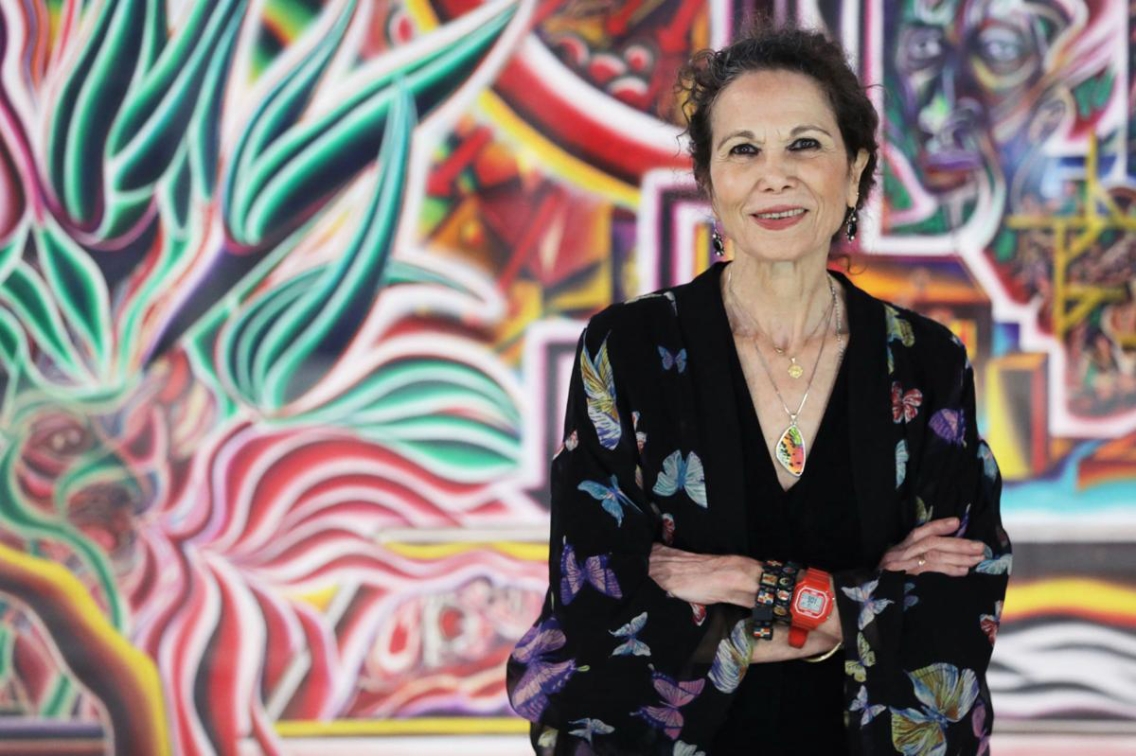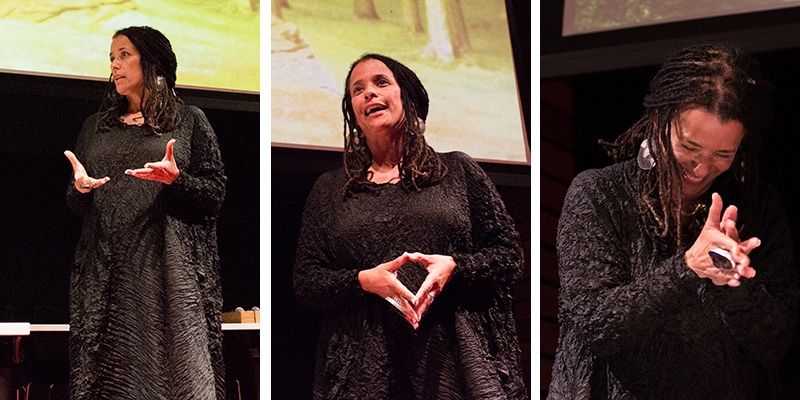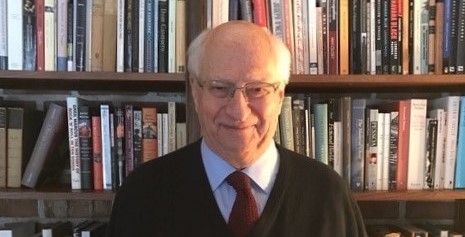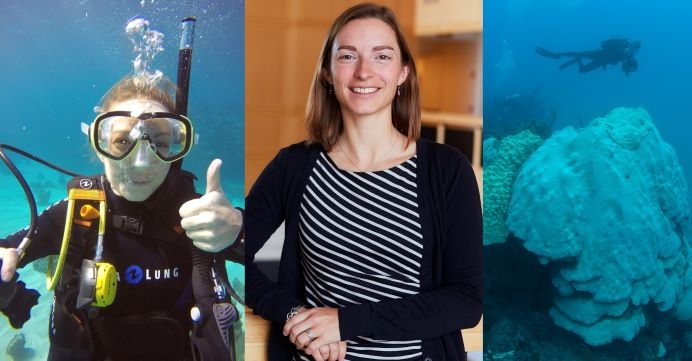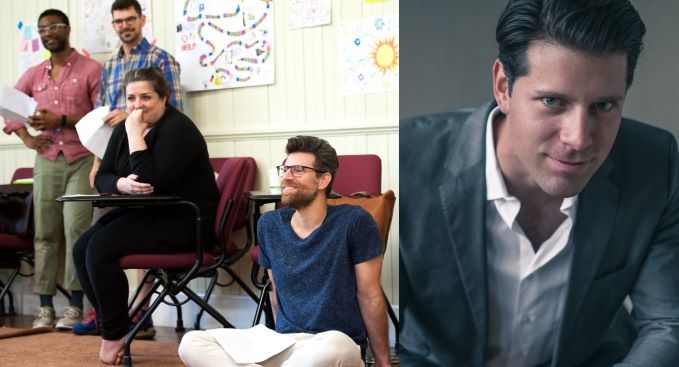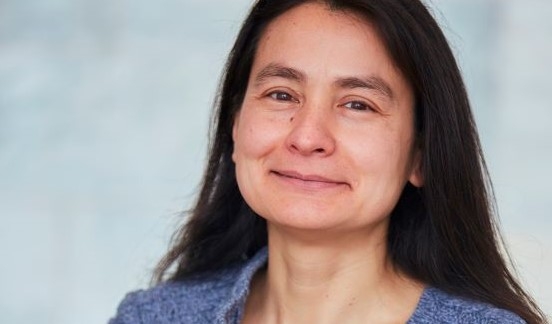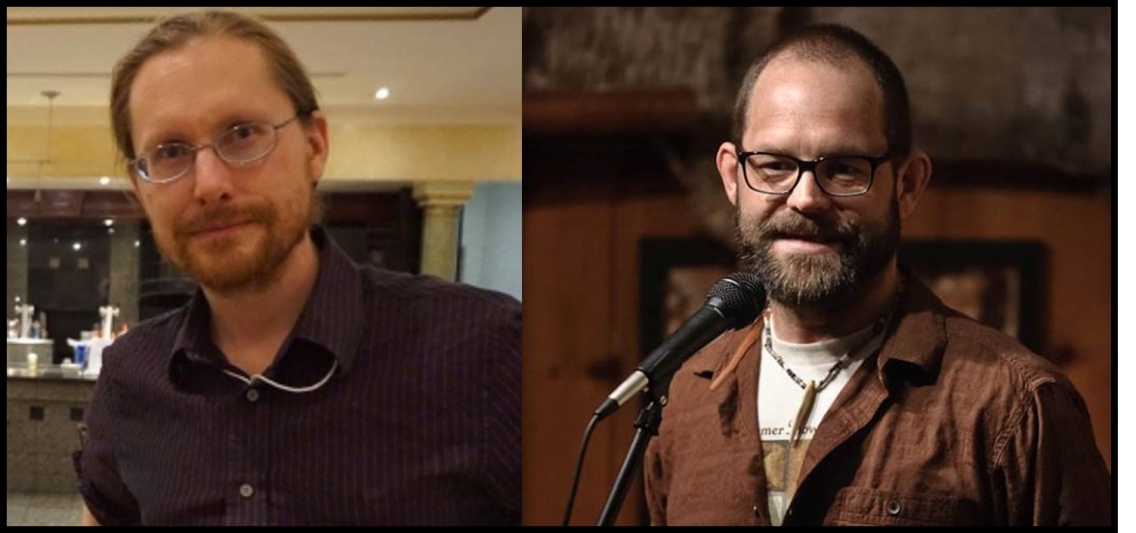Summer 2020 Recorded Series
The following Faculty at Home webinars took place in summer 2020. Recordings of these webinars are posted below.
Afterlife: Julia Alvarez in Conversation with John Elder About Her Latest Novel
Julia Alvarez discusses her first novel for adults in fifteen years with John Elder. Afterlife — a novel about what happens when the life we plan goes awry, retirement after a long career teaching, and honoring the diversity in each other and ourselves — is especially timely in this moment in our national and global history.
In the course of their discussion, John will invite Julia to place this novel in the larger context of her writing, to relate it to the place of Vermont in her life and work, and to reflect upon its implications for the stresses and opportunities of the present moment.
The perils of being black in public: a conversation with Carolyn Finney
A conversation with Carolyn Finney whose piece, “The perils of being black in public: we are all Christian Cooper and George Floyd”, recently appeared in The Guardian. With Caitlin Myers and Sarah Stroup as moderators, Dr. Finney will address current issues around race and the environment. Webinar attendees will be able to submit questions before and during the webinar.
Michael Wood - Dreams and Deferrals: Listening to Langston Hughes and Toni Morrison
Professor Wood discusses what we may hear when we listen closely to the work of Langston Hughes and Toni Morrison, paying special attention perhaps to what they don’t say. It will also consider the effect of listening with them, tuning in to some of the unforgettable jazz that gave a title to a Morrison novel, and that was never far away from any of Hughes’ poems.
Erin Eggleston - Assessing coral reef resilience to thermal stress in the face of climate change
Anthropogenic climate change threatens coral reef ecosystems in several ways. By comparing coral samples from a reef that experienced bleaching at high temperatures, and one that did not, we determined biological factors indicating temperature stress resilience. These data improve our biological understanding of these reefs, and provide insight for conservation efforts.
Craig Maravich - Beyond the Page: Using Theatre to Transform the Classroom
Beyond the Page is a new project at Middlebury College started by The Bread Loaf School of English and led by Craig Maravich. This project partners with professional actors/teaching artists, faculty and students to embed theatre arts practices across the undergraduate and graduate curriculum. This talk will explore how this pedagogy fosters creativity and critical thinking, and has the potential to revolutionize teaching in the liberal arts.
Beyond the Page is the evolution of the Bread Loaf School of English’s Acting Ensemble - a cohort of professional actors that serve as part of the Bread Loaf School of English teaching force. The ensemble collaborates with faculty to bring theater arts practices into educational spaces to catalyze cultural and literary inquiry. Watch a short video documenting the work of the Acting Ensemble by clicking the link above.
Rebecca Ayako Bennette - Diagnosing Dissent: Soldiers and Psychiatry in Germany from WWI to the Nazi Era
Unlike in countries such as the United States and Britain, Germany had no process for soldiers to legally express conscientious objection to military service in WWI. This has led historians to conclude that such dissent in Germany was very limited in comparison, with the isolated cases of Germans who did express such opposition being relegated to the purview of physicians and psychiatric institutions. It has been seen as one more example of the highly oppressive and indeed brutal system of German military psychiatry in action, the same system that categorically dismissed soldiers suffering from shell shock as nothing more than weaklings or shirkers. Yet, by examining the actual patient files of thousands of WWI soldiers, Rebecca Bennette reveals that dissent was far more prevalent in Germany than has been assumed and the medicalization of dissenters actually worked to the benefit of these individuals in many cases. Indeed, dissenters themselves often lobbied to have military psychiatrists become involved in their cases. While this involvement of physicians during World War One could offer important protections to the soldiers involved, the rise of the Nazi Regime and its institution of eugenics policies changed everything.
Jesse Bowman Bruchac and Conor McDonough Quinn - Abenaki, In Relation to the Language
This summer, Middlebury added a pilot program in Abenaki to the Language Schools. For the last three decades, Jesse Bowman Bruchac and Conor McDonough Quinn have worked both together and individually in Abenaki and other Eastern Algonquian language revitalization efforts. They see this work as not only about language, but also about the strengthening of culture and community. These efforts have led Dr. Quinn to develop and implement an Indigenous inspired relational approach to teaching language, in concert with Jesse’s culturally guided incorporation of music, and technology. During their Faculty at Home presentation, they will be discussing formative experiences and methods, as well as reflecting on their extremely successful first session at the new Middlebury Language School of Abenaki.
In his quest to revitalize Abenaki, Jesse Bowman Bruchac has created multiple ways to make the language accessible including a website, a YouTube Channel, and recordings of teaching songs.
Jesse Bowman Bruchac is a Nulhegan Abenaki Citizen. He is a traditional storyteller, musician, and educator. He is the co-director of his family-run education center Ndakinna. He and Dr. Quinn co-teach a Wabanaki Language course at the University of Southern Maine. He has also worked as a consultant, translator, composer and language coach for programs on AMC, National Geographic and PBS.
Conor McDonough Quinn received his PhD from Harvard University in Linguistics in 2006. He is a sought after speaker and lecturer and currently teaches at the University of Southern Maine. He has also taught at St. Thomas University and McGill University, University of Nizwa, Oman, and the University of California, Berkeley. He has at least substantial working experience in over twenty languages.


